Categories
Psychology
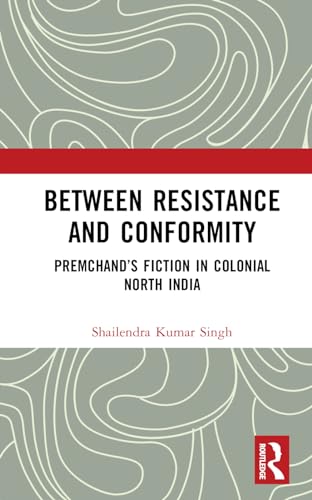
Between Resistance and Conformity
Shailendra Kumar Singh
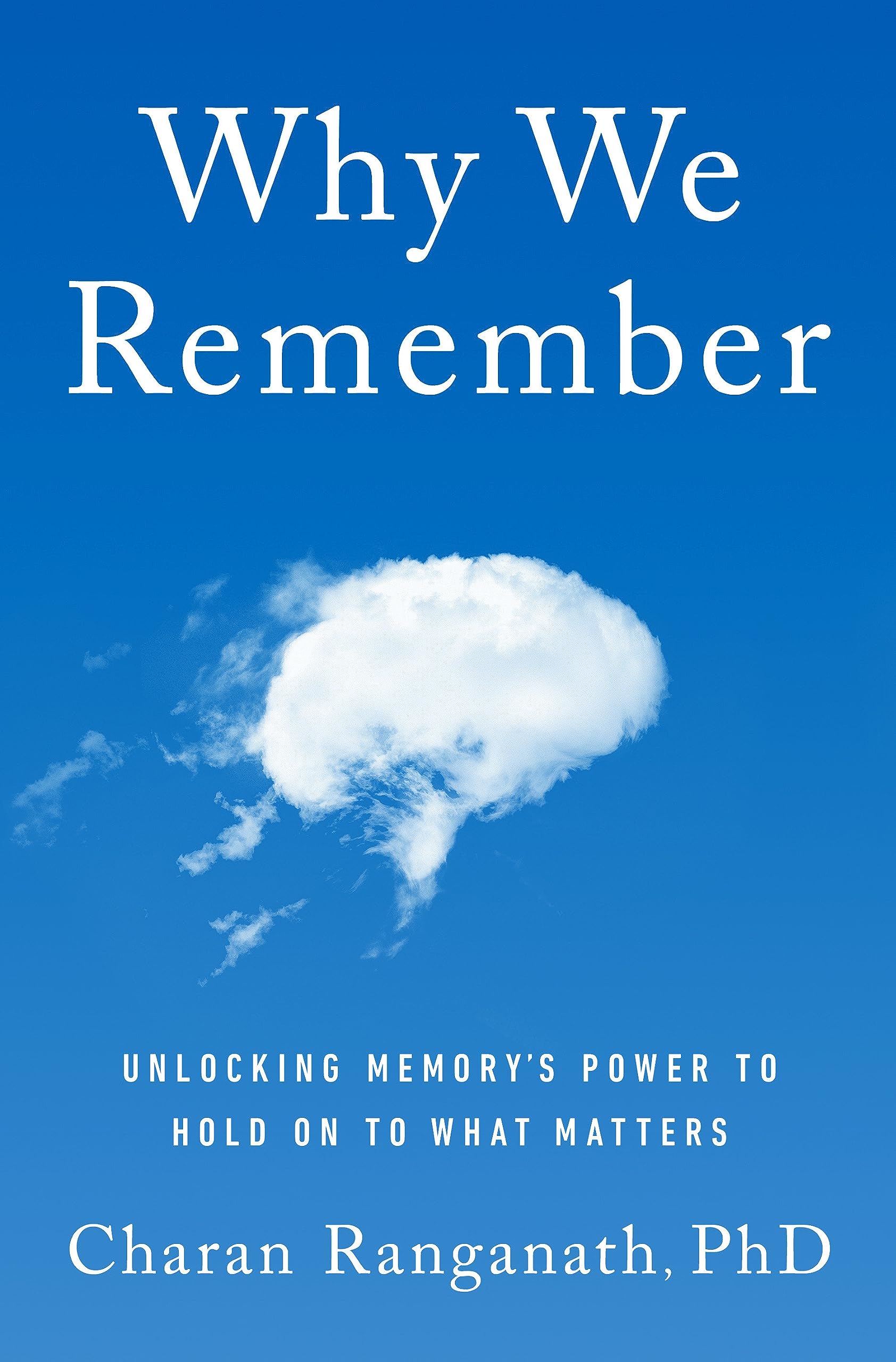
Why We Remember: Unlocking Memory's Power to Hold on to What Matters
Charan Ranganath
Memory is far more than a record of the past. In this groundbreaking tour of the mind and brain, one of the world’s top memory researchers reveals the powerful role memory plays in nearly every aspect of our lives, from recalling faces and names, to learning, decision-making, trauma and healing. A new understanding of memory is emerging from the latest scientific research. In Why We Remember , pioneering neuroscientist and psychologist Charan Ranganath radically reframes the way we think about the everyday act of remembering. Combining accessible language with cutting-edge research, he reveals the surprising ways our brains record the past and how we use that information to understand who we are in the present, and to imagine and plan for the future. Memory, Dr. Ranganath shows, is a highly transformative force that shapes how we experience the world in often invisible and sometimes destructive ways. Knowing this can help us with daily remembering tasks, like finding our keys, and with the challenge of memory loss as we age. What’s more, when we work with the brain’s ability to learn and reinterpret past events, we can heal trauma, shed our biases, learn faster, and grow in self-awareness. Including fascinating studies and examples from pop culture, and drawing on Ranganath’s life as a scientist, father, and child of immigrants, Why We Remember is a captivating read that unveils the hidden role memory plays throughout our lives. When we understand its power-- and its quirks--we can cut through the clutter and remember the things we want to remember. We can make freer choices and plan a happier future.
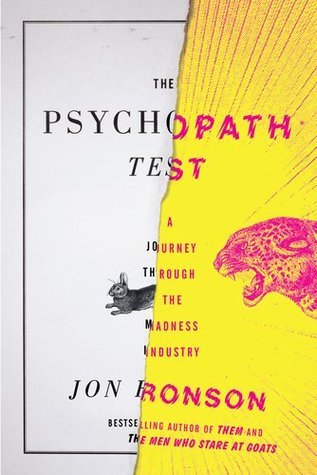
The Psychopath Test: A Journey Through the Madness Industry
Jon Ronson
In this madcap journey, a bestselling journalist investigates psychopaths and the industry of doctors, scientists, and everyone else who studies them. The Psychopath Test is a fascinating journey through the minds of madness. Jon Ronson's exploration of a potential hoax being played on the world's top neurologists takes him, unexpectedly, into the heart of the madness industry. An influential psychologist who is convinced that many important CEOs and politicians are, in fact, psychopaths teaches Ronson how to spot these high-flying individuals by looking out for little telltale verbal and nonverbal clues. And so Ronson, armed with his new psychopath-spotting abilities, enters the corridors of power. He spends time with a death-squad leader institutionalized for mortgage fraud in Coxsackie, New York; a legendary CEO whose psychopathy has been speculated about in the press; and a patient in an asylum for the criminally insane who insists he's sane and certainly not a psychopath. Ronson not only solves the mystery of the hoax but also discovers, disturbingly, that sometimes the personalities at the helm of the madness industry are, with their drives and obsessions, as mad in their own way as those they study. And that relatively ordinary people are, more and more, defined by their maddest edges.
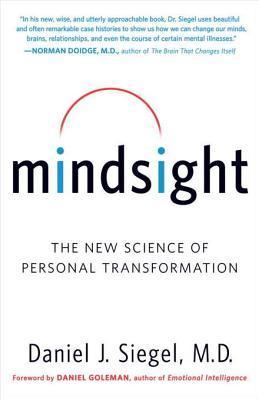
Mindsight: The New Science of Personal Transformation
Daniel J. Siegel
Foreword by Daniel Goleman, author of Emotional Intelligence.This groundbreaking book, from one of the global innovators in the integration of brain science with psychotherapy, offers an extraordinary guide to the practice of “mindsight,” the potent skill that is the basis for both emotional and social intelligence. From anxiety to depression and feelings of shame and inadequacy, from mood swings to addictions, OCD, and traumatic memories, most of us have a mental “trap” that causes recurring conflict in our lives and relationships. Daniel J. Siegel, M.D., a clinical professor of psychiatry at the UCLA School of Medicine and co-director of the UCLA Mindful Awareness Research Center, shows us how to use mindsight to escape these traps. Through his synthesis of a broad range of scientific research with applications to everyday life, Dr. Siegel has developed novel approaches that have helped hundreds of patients free themselves from obstacles blocking their happiness. By cultivating mindsight, all of us can effect positive, lasting changes in our brains—and our lives. A book as inspiring as it is profound, Mindsight can help us master our emotions, heal our relationships, and reach our fullest potential.
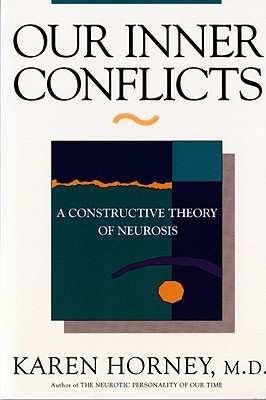
Our Inner Conflicts: A Constructive Theory of Neurosis
Karen Horney
Unlike Freud, Horney does not regard neurosis as rooted in instinct. In her words, her theory is constructive because "it allows us for the first time to tackle and resolve neurotic hopelessness. . . . Neurotic conflicts cannot be resolved by rational decision. . . . But [they] can be resolved by changing the conditions within the personality that brought them into being."
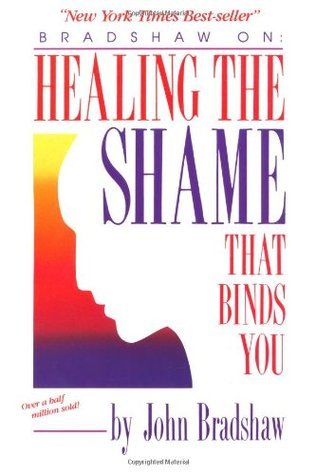
Healing the Shame That Binds You
John Bradshaw
In an emotionally revealing way Bradshaw shows us how toxic shame is the core problem in our compulsions, co-dependencies, addictions ant he drive to superachieve resulting in the breakdown in the family system and our inability to go forward with our lives. We are bound, Bradshaw tells us by our shame. He offers us the techniques to heal our shame.
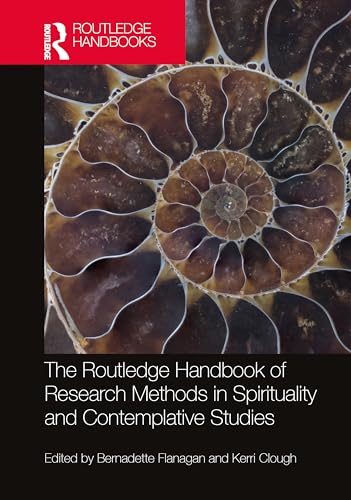
The Routledge Handbook of Research Methods in Spirituality and Contemplative Studies
Bernadette Flanagan, Kerri Clough
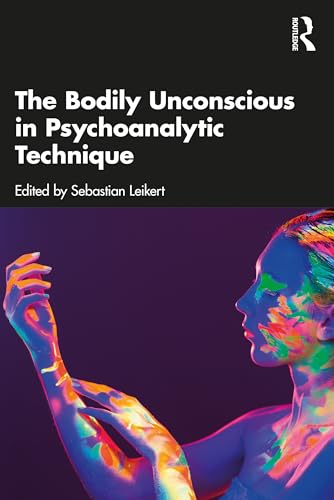
The Bodily Unconscious in Psychoanalytic Technique
Sebastian Leikert
The Bodily Unconscious in Psychoanalytic Technique explores how corporeality and body memory can be more strongly integrated into psychoanalytic work. This book brings together an international range of contributors to consider the bodily unconscious from different theoretical perspectives. Concepts from the work of Freud, Bion, Winnicott, Lacan, Laplanche, and Fonagy are developed with the aim of incorporating body memory into psychoanalytic technique. The contributors consider how severe and complex clinical states, dominated by bodily symptoms and disorganization, can be approached with methods that go beyond classical interpretation. The book includes ten case histories and discussion of key themes including transference and countertransference, feelings of corporeality and bodily sensations, and features clinical material throughout. The Bodily Unconscious in Psychoanalytic Technique will be essential reading for psychoanalysts and psychoanalytic psychotherapists in practice and training, particularly those interested in somatic approaches.
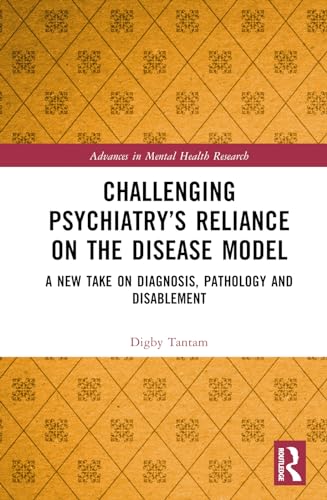
Challenging Psychiatry’s Reliance on the Disease Model
Digby Tantam
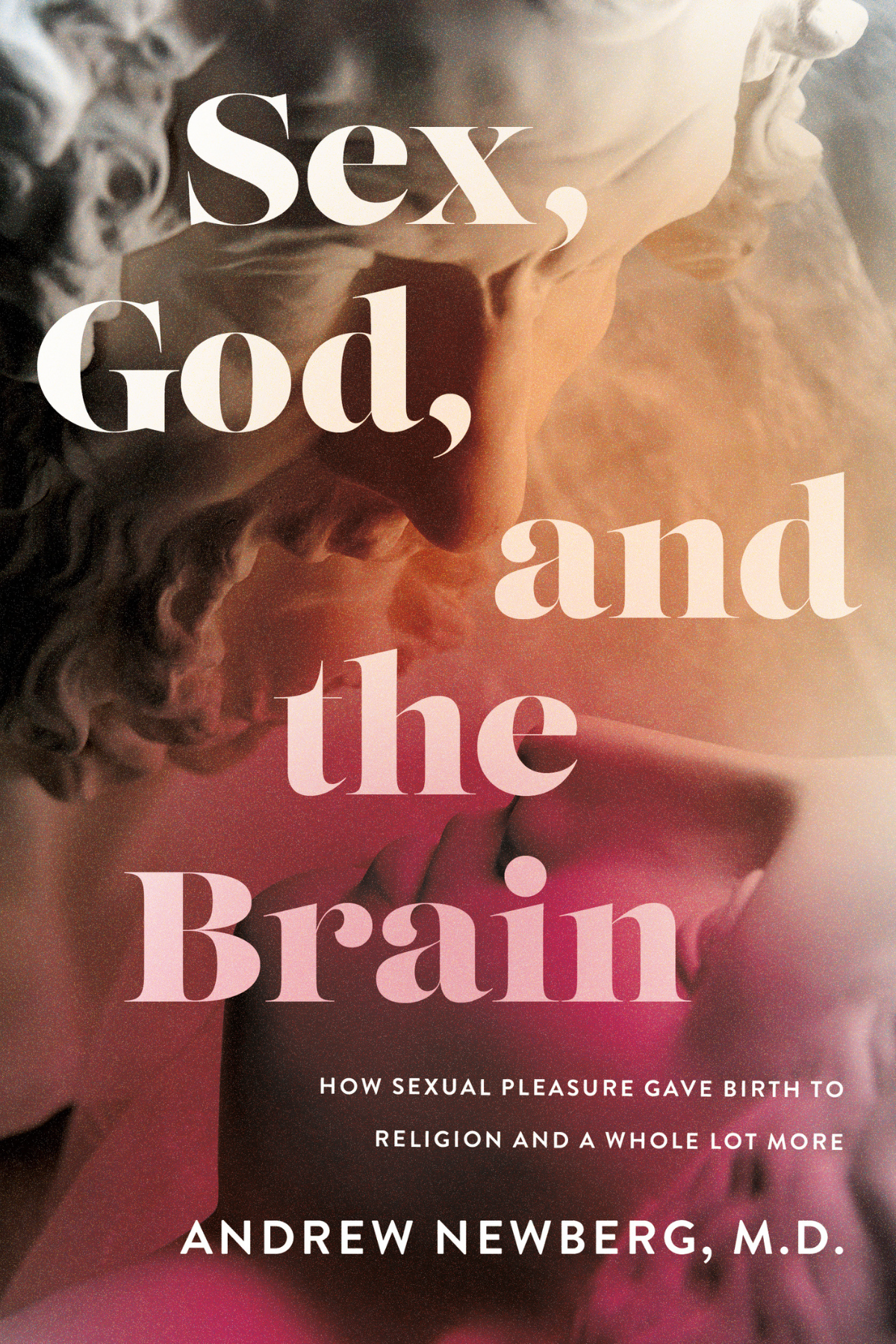
Sex, God, and the Brain: How Sexual Pleasure Gave Birth to Religion and a Whole Lot More
Andrew B. Newberg
For the modern world, it seems as if sexuality and spirituality have always been at odds. But what if the two are actually deeply connected? And what if science could prove this connection? From neuroscientist Andrew Newberg, Sex, God, and the Brain argues that our religious and spiritual experiences derive directly from our sexual being. While others have speculated on a connection between religion and sex, Newberg is the first to demonstrate—with groundbreaking brain scan research gained through Orgasmic Meditation studies—that the underlying biological mechanism of religious, spiritual, and sexual experiences are identical. With research technical enough for academics, but explained simply enough for the everyday reader, Sex, God, and the Brain, will reframe our understanding of the link between spirituality and sexuality.
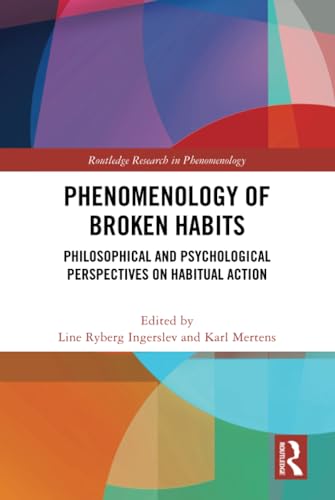
Phenomenology of Broken Habits
Line Ryberg Ingerslev, Karl Mertens
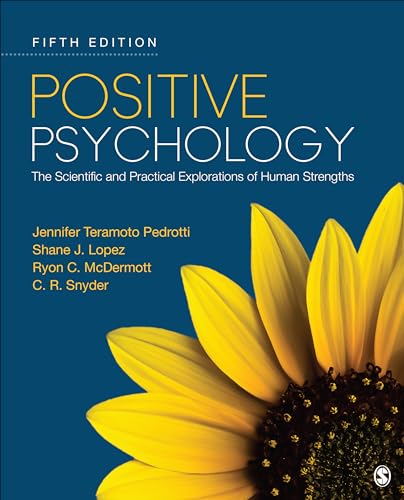
Positive Psychology: The Scientific and Practical Explorations of Human Strengths
Jennifer Teramoto Pedrotti, Shane J. Lopez, Ryon C. McDermott, Charles Richard Snyder
Positive The Scientific and Practical Explorations of Human Strengths, Fifth Edition offers comprehensive coverage of the science and application of positive emotions and human strengths such as empathy, altruism, gratitude, attachment and love. Jennifer Teramoto Pedrotti, Shane Lopez, Ryon McDermott, and C.R. Snyder bring positive psychology to life by showing how it can improve all phases of contemporary life.
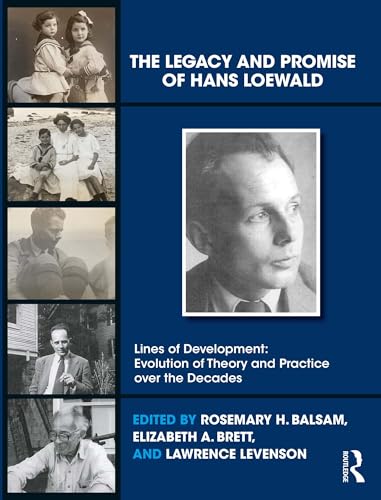
The Legacy and Promise of Hans Loewald
Rosemary H. Balsam, Elizabeth A. A. Brett, Lawrence Levenson
Alongside its continuing volume, this rich collection of essays addresses the current lack of familiarity with the ideas and life of the eminent psychoanalytic teacher and scholar, Hans Loewald (1906-1993), by presenting the most comprehensive account of his work ever produced. Its chapters present Loewald's intellectual history, his reception on the North American psychoanalytic scene, as well as clinical offshoots from his thinking and its importance for the future. An obituary, written by a close friend, also provides a summary of Loewald's personal and professional life. With the benefit of authors able to detect the functions and place of Heidegger's teaching in Loewald's thought, this book will newly enlighten readers to Heidegger's place in Loewald's expansive, open-system vision of the psyche. Featuring contributions from those who worked directly with Loewald, and those inspired by his ideas, this book will be essential reading for any psychoanalyst of psychotherapist working today.
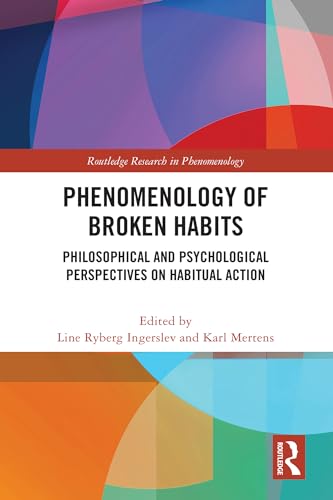
Phenomenology of Broken Habits: Philosophical and Psychological Perspectives on Habitual Action
Line Ryberg Ingerslev, Karl Mertens
This volume explores the phenomenology of broken habits and their affective, social, and involuntary dimensions. It shows how disruptive experiences impact self-understanding and social embeddedness. The chapters in this volume investigate the epistemic and existential relevance of breakdown of habits and the corresponding kinds of self-understanding available to the agent. The first part focuses on the double-sidedness of habitual life. On the one hand, habits allow us to arrange and navigate in a familiar home world; on the other hand, habits can take hold of us in such a way that we lose our sense of autonomy. The contributors argue that habitual agency is structurally carried by a dynamic that entails both freedom and necessity. As habits enable us to inhabit and thus acquire a world, they also affectively provide a texture and a background for our feeling at home in the world. The chapters in Part 2 focus on the breakdowns of our habitual social and technological life forms and the phenomenology of their affective texture. History and habitual learning are sedimented in our body memory and in our language, and these sedimented layers are partly out of our direct control. Part 3 focuses on the structural openness of habits in relating to one’s past and one’s traumatic experiences. Part 4 reflects on the ways in which we might become aware of and thus transform or appropriate our culturally given habits. Phenomenology of Broken Habits will appeal to researchers and advanced students working in phenomenology, philosophy of mind, and philosophy of psychology.
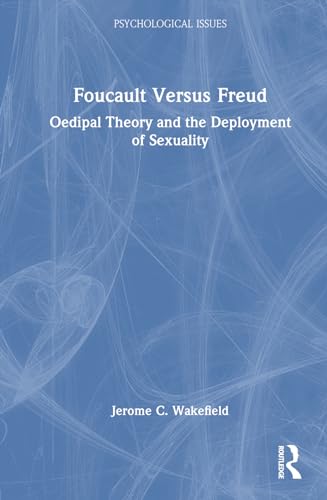
Foucault Versus Freud
Jerome C. Wakefield
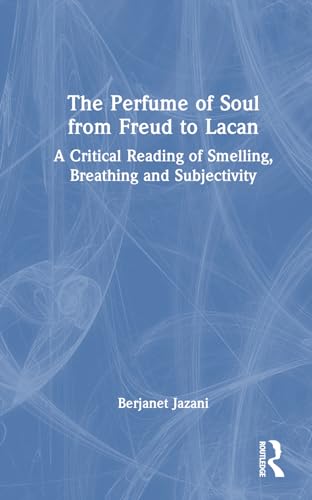
The Perfume of Soul from Freud to Lacan
Berjanet Jazani
The Perfume of Soul from Freud to Lacan seeks to understand the human sense of smell and its marks on our subjectivity from a psychoanalytic perspective. Accessibly written, the book considers whether our understanding of the sense of smell and odours in culture has changed over time, and where we locate olfaction in theories of psychoanalysis. Beginning with the theorisation of the sense of smell in philosophy and medicine, Berjanet Jazani explores what treatment of this sense we can find in historical and contemporary linguistic and cultural context. Jazani then takes examples from the psychoanalytic clinic as well as cultural references, from cinema to ancient literature, to elaborate the marks of the olfactory experiences on our subjectivity and sexuality. Lacanian theories, clinical anecdotes and autobiographical references are woven together to raise some critical questions about the law of odours as well as the invisible marks of breathing on subjective position, body, and symptom. The Perfume of Soul from Freud to Lacan will be of great interest to psychoanalysts, academics, and all readers who are interested in psychoanalysis, philosophy, and culture.
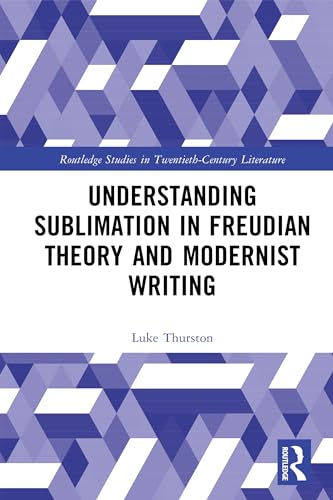
Understanding Sublimation in Freudian Theory and Modernist Writing
Luke Thurston
What is at stake in Freud’s enduring preoccupation with a process supposedly diverting sexuality into cultural activity? In this study, a leading scholar of psychoanalysis and literature re-opens the old question of sublimation in a critical reading that explores one of the last remaining puzzles of Freudian thought. Using the rigorous framework provided by Jean Laplanche, Luke Thurston resituates sublimation as an unfinished Freudian concept bound up with a much wider history of philosophical and literary reflection. Exploring the misunderstanding and reinvention of sublimation both in accounts of cultural history and in Lacan’s celebrated reading of Antigone, Thurston challenges some of the prevalent assumptions still seen in contemporary “theory.” Thurston links his critical investigation of psychoanalysis to modernist literature, discovering both parallels and alternatives to Freud’s idea of sublimation in little-known works by May Sinclair and David Jones. The study concludes by arguing that these modernist artists, both of whom were significantly affected by trauma during the First World War, produced work radically at odds with the established canons of representation, and that this “anti-hermeneutic” art can be linked to a “Copernican” sublimation, a process not controlled by the ego but vitalizing it and decentring its habitual structure.
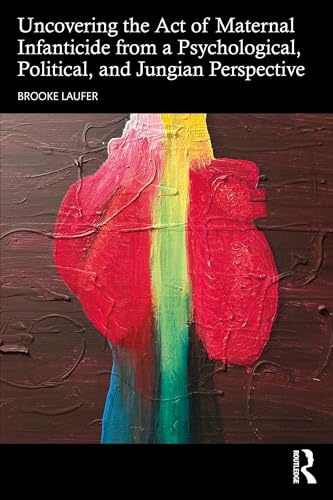
Uncovering the Act of Maternal Infanticide from a Psychological, Political, and Jungian Perspective
Brooke Laufer
Using a wide range of disciplinary backgrounds, Laufer examines the topic of maternal infanticide through the lens of Jungian theory and presents an integrated and forensic view of this issue as an aggregate of personal and political moments, and as a feminine and feminist outcry urging human evolution. The first part of the book will dissect the identity of the infanticidal mother and the Death Mother archetype, with the author providing firsthand accounts of patients that she has worked with in her professional career. The second part of the book focuses on interpreting that act of maternal infanticide, and these chapters will look to the construct of patriarchal Motherhood as a way of explaining the drive and actions of an infanticidal mother. The third and final section of the book takes the concept of evolution and transmutation a step further and addresses what is required in our modern state for the event of maternal infanticide. This is an important new book for Jungian and analytic clinicians and scholars with an interest in maternal archetypes, as well as psychologists and psychiatrists who specialise in perinatal mental health. It would also be appropriate for forensic psychologists and legal analysts, and academics and clinicians in the fields of women’s health and studies.
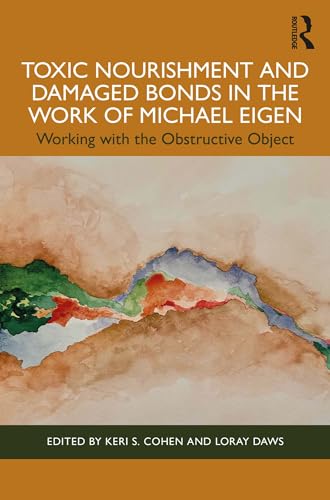
Toxic Nourishment and Damaged Bonds in the Work of Michael Eigen: Working with the Obstructive Object
Keri S. Cohen, Loray Daws
Toxic Nourishment and Damaged Bonds in the Work of Michael Eigen examines Eigen’s rich phenomenological work on the Obstructive Object. The contributors to this collection explore the core theme with reference to key Eigen works, including The Psychotic Core, Psychic Deadness, Toxic Nourishment, and Damaged Bonds. This volume seeks to elaborate on the Obstructive Object through essays and poems that include poignant clinical examples, the impact of exceptionally traumatized patients on their analysts, literature comparisons, and the more "mystical aspect" of Eigen’s influence on working with the obstructive object. Essays draw from Virginia Woolf, Elena Ferrante, Wilfred Bion, D.W. Winnicott, Andrè Greene, Christopher Bollas, and Adam Phillips, among many others, in exploring injury-rage, unwanted patients, psychoanalytic faith, toxic nourishment, and damaged bonds. Toxic Nourishment and Damaged Bonds in the Work of Michael Eigen will greatly interest psychoanalysts, psychotherapists, and those interested in psychoanalytic and spiritual psychology.
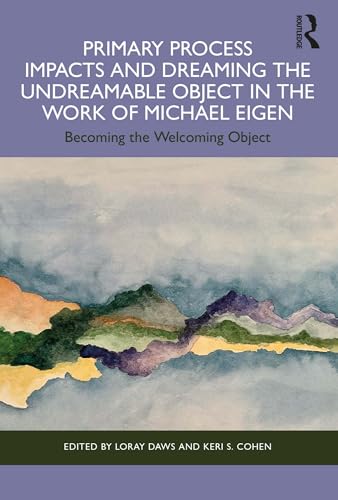
Primary Process Impacts and Dreaming the Undreamable Object in the Work of Michael Eigen: Becoming the Welcoming Object
Loray Daws, Keri S. Cohen
Primary Process Impacts and Dreaming the Undreamable Object in the Work of Michael Eigen examines Eigen’s rich phenomenological work on becoming a welcoming object. The contributors to this collection explore the core theme with reference to key Eigen works including Feeling Matters and Contact with the Depths. As a primary process psychoanalyst, Eigen’s writing reflects a unique rhythm of faith that is able to "revivify" union-distinction body-affect-thinking potentialities within a creative psychoanalytic dyad. In this book, alongside its companion volume, Toxic Nourishment and Damaged Bonds in the Work of Michael Eigen, contemporary Eigen readers and writers articulate the various welcoming processes and attitudes needed to cultivate a "Hearing Heart," a central ingredient in reaching and touching those parts of self-deemed unwanted, unwelcomed, and even traumatized. Primary Process Impacts and Dreaming the Undreamable Object in the Work of Michael Eigen represents a wide range of psychoanalytic perspectives, and the chapters describe the genius of Eigen as well as contribute their own clinical and academic acumen. Presenting a key aspect of Michael Eigen's transformational aesthetic, this book will be of great interest to psychoanalysts, psychotherapists, and all those with an interest in psychoanalytic and spiritual psychology.
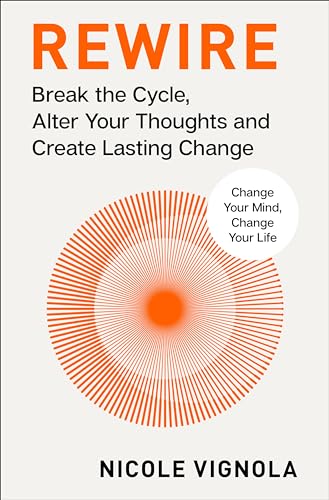
Rewire: Break the Cycle, Alter Your Thoughts and Create Lasting Change
Nicole Vignola
Change your mind to change your life—discover the neuroscience of a better you in this revolutionary book from neuroscientist and online sensation Dr. Nicole Vignola that teaches you how to rewire your brain to achieve peak mental wellbeing. Are you stuck in a habit of believing you are not good enough? Do you fixate on a particular story about yourself that you wish you could change? Are negative beliefs holding you back from reaching your fullest potential? Do you sometimes feel like it’s just too hard, or too late, to change? If any of this sounds familiar, you need Rewire, your personal guide to understanding the neuroscience of why you are subconsciously programmed to repeat certain habits and how you can do, or undo, any type of behavior to be the person you want to be. BREAK THE CYCLE, ALTER YOUR THOUGHTS AND CREATE LASTING CHANGE In clear language, neuroscientist Nicole Vignola demystifies the science—how to break bad habits and how to make good ones, outlines the principles of neuroplasticity and why you need two things to make a change as an adult (attention and intention), and introduces her neurohack methods that can help you change your behavioral patterns—enabling you to see yourself in a different way and control how you react to any life situation, from overcoming negative, limiting beliefs to managing stress and achieving peak mental wellbeing. Think of your brain as your hardware and your mental health as your software. Your hardware must work well before you can upgrade your software; Once you learn the fundamentals of rewiring your brain, you can instill new habits, shift your mindset, and change unwanted behavior to create the best version of yourself. We all have habits and behaviors that hold us back from reaching our fullest potential. This book will help you see that you are not stuck, that you can rewrite your story—and shows you how.
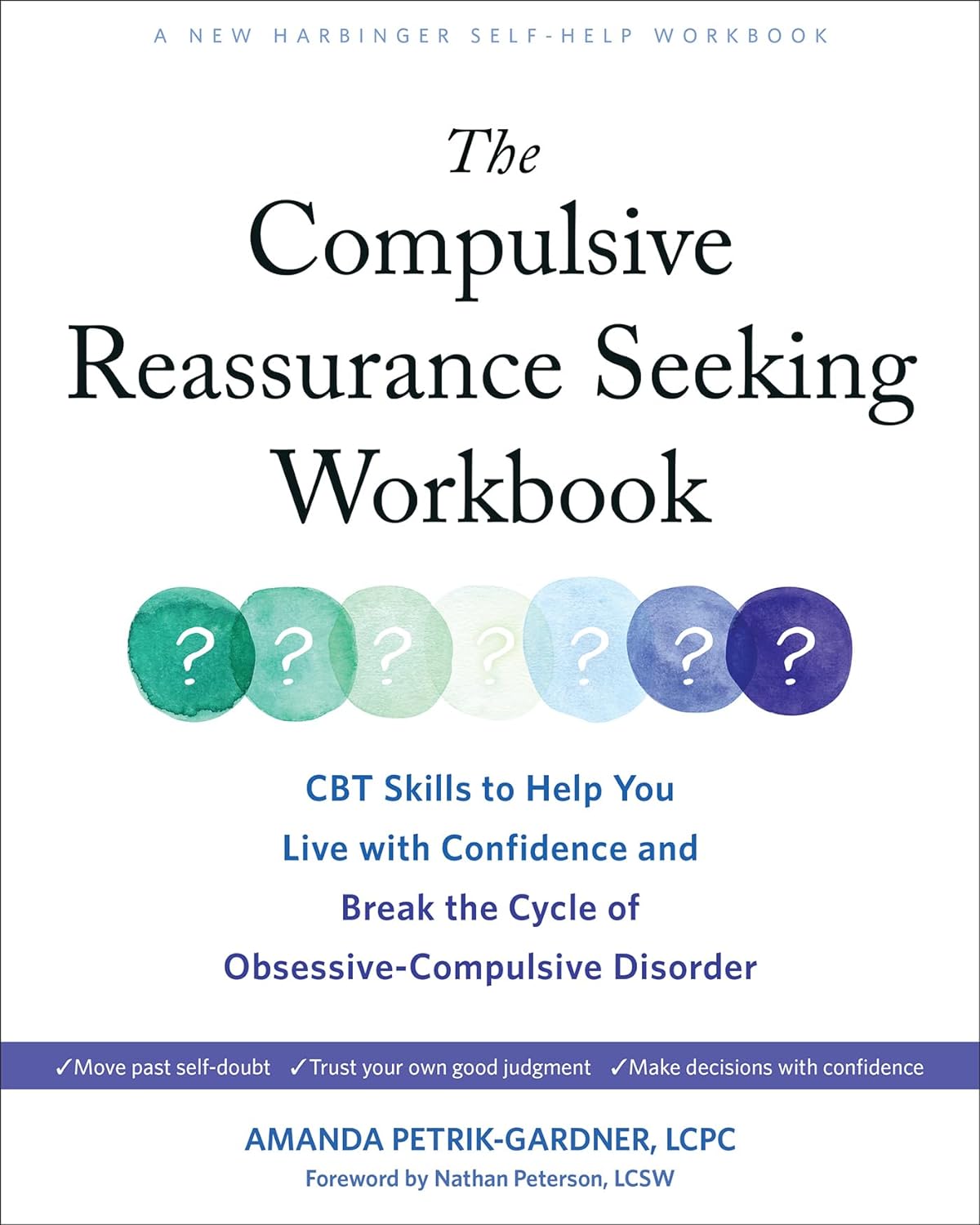
The Compulsive Reassurance Seeking Workbook: CBT Skills to Help You Live with Confidence and Break the Cycle of Obsessive-Compulsive Disorder
Amanda Petrik-Gardner
Learn to trust your own senses, live with confidence, and break the cycle of compulsive reassurance seeking with this empowering, step-by-step workbook. Are you constantly seeking reassurance from others? Do you suffer from debilitating anxiety if you aren’t absolutely certain about everything ? Seeking reassurance to remove doubt or fear is natural, and we all do it from time to time. However, it becomes a compulsion when it develops into something repetitive and ritualistic. This compulsion is linked to obsessive-compulsive disorder (OCD), can perpetuate and worsen this condition, and can also create conflict between you, your friends, coworkers, and loved ones. So, how do you stop? The Compulsive Reassurance Seeking Workbook offers proven-effective tools to reduce compulsions, make peace with uncertainty, and better manage your OCD. Grounded in cognitive behavioral therapy (CBT), an evidence-based treatment for OCD, this cutting-edge workbook reveals how reassurance seeking can interfere with your relationships, and provides healthy coping strategies you can use to reassure yourself— without resorting to compulsive questioning. Compulsive reassurance seeking can be exhausting, and more often than not, exposes you and those closest to you to increased levels of conflict, stress, and anxiety. It’s time to reassure yourself the right way—a way that encourages and empowers you to seek genuine well-being, self-worth, and peace of mind from within. This workbook can help you get started today.
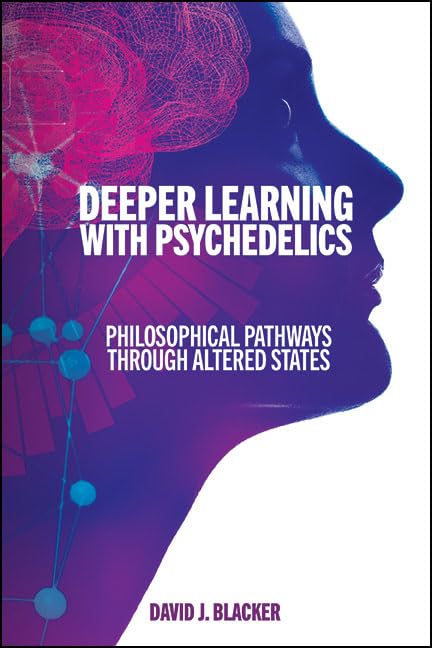
Deeper Learning with Psychedelics: Philosophical Pathways through Altered States
David J. Blacker
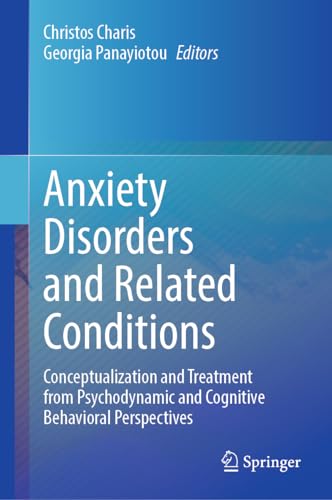
Anxiety Disorders and Related Conditions: Conceptualization and Treatment from Psychodynamic and Cognitive Behavioral Perspectives
Christos Charis, Georgia Panayiotou
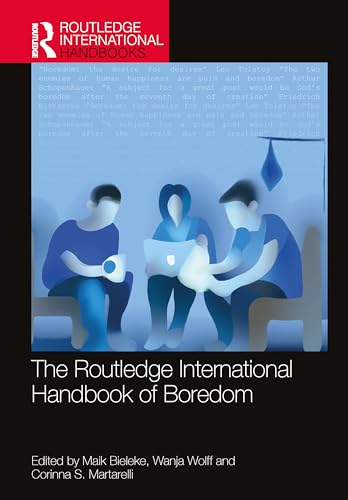
The Routledge International Handbook of Boredom
Maik Bieleke, Wanja Wolff, Corinna Martarelli
This comprehensive text is a unique handbook dedicated to research on boredom. The book brings together leading contributors from across three continents and numerous fields to provide an interdisciplinary exploration of boredom, its theoretical underpinnings, its experiential properties, and the applied contexts in which it occurs. Boredom is often viewed as a mental state with little utility, though recent research suggests that it can be a powerful motivator of human behavior that shapes our actions in many ways. The book examines boredom from a range of perspectives and is comprised of three parts. Part I delves into the theoretical approaches to boredom, presenting methods for its measurement, explaining when and why boredom occurs, and scrutinizing the impact it has on our behavior. Part II focuses on the psychological and neural properties of boredom and its associations with a multitude of mental and interpersonal processes, such as self-control, mind-wandering, flow, and aggression. Part III presents boredom in practical contexts like school and work, and sheds light on its role for health-related behaviors, psychosocial well-being, and aesthetic experiences. The book concludes by summarizing the state of boredom research, identifying promising areas for future research, and providing directions for how research on boredom can be advanced. As the authoritative book on boredom, this handbook is an essential resource for students and researchers of psychology, sociology, education, sport science, and computer science.
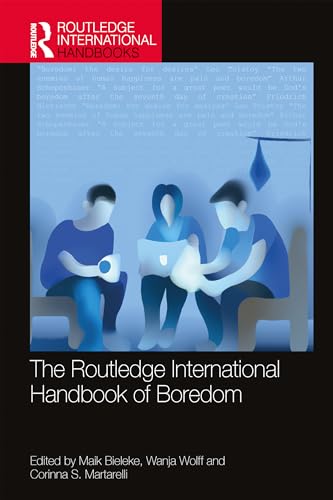
The Routledge International Handbook of Boredom
Maik Bieleke, Wanja Wolff, Corinna Martarelli
This comprehensive text is a unique handbook dedicated to research on boredom. The book brings together leading contributors from across three continents and numerous fields to provide an interdisciplinary exploration of boredom, its theoretical underpinnings, its experiential properties, and the applied contexts in which it occurs. Boredom is often viewed as a mental state with little utility, though recent research suggests that it can be a powerful motivator of human behavior that shapes our actions in many ways. The book examines boredom from a range of perspectives and is comprised of three parts. Part I delves into the theoretical approaches to boredom, presenting methods for its measurement, explaining when and why boredom occurs, and scrutinizing the impact it has on our behavior. Part II focuses on the psychological and neural properties of boredom and its associations with a multitude of mental and interpersonal processes, such as self-control, mind-wandering, flow, and aggression. Part III presents boredom in practical contexts like school and work, and sheds light on its role for health-related behaviors, psychosocial well-being, and aesthetic experiences. The book concludes by summarizing the state of boredom research, identifying promising areas for future research, and providing directions for how research on boredom can be advanced. As the authoritative book on boredom, this handbook is an essential resource for students and researchers of psychology, sociology, education, sport science, and computer science.
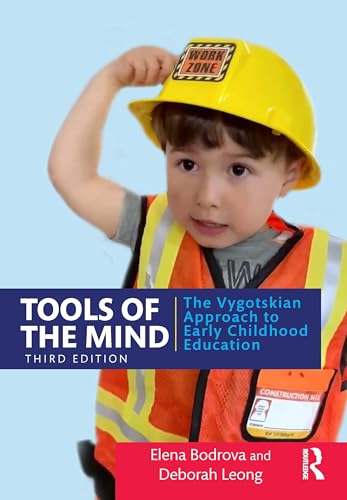
Tools of the Mind
Elena Bodrova, Deborah Leong
Now in its third edition, this classic text remains the seminal resource for in-depth information about major concepts and principles of the cultural-historical theory developed by Lev Vygotsky, his students, and colleagues, as well as three generations of neo-Vygotskian scholars in Russia and the West. Featuring two new chapters on brain development and scaffolding in the zone of proximal development, as well as additional content on technology, dual language learners, and students with disabilities, this new edition provides the latest research evidence supporting the basics of the cultural-historical approach alongside Vygotskian-based practical implications. With concrete explanations and strategies on how to scaffold young children’s learning and development, this book is essential reading for students of early childhood theory and development.
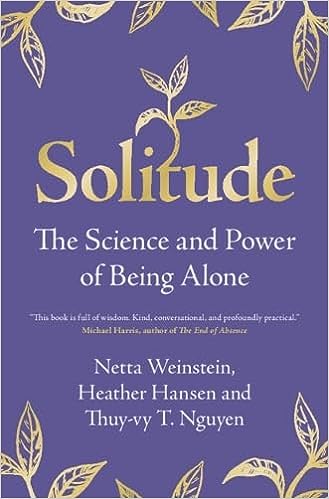
Solitude: The Science and Power of Being Alone
Netta Weinstein, Heather Hansen, Thuy-vy T. Nguyen
The average adult spends nearly one-third of their waking life alone. How do we overcome the stigma of solitude and find strength in going it alone? Whether we love it or try to avoid it, we can make better use of that time. The science of solitude shows that alone time can be a powerful space used to tap into countless benefits. Translating key research findings into actionable facts and advice, this book shows that alone time can boost well-being. From relaxation and recharging to problem solving and emotional regulation, solitude can benefit personal growth, contentment, creativity, and our relationships with ourselves and others. By learning what makes us better at spending time alone, you can use these principles to move toward your best possible self.
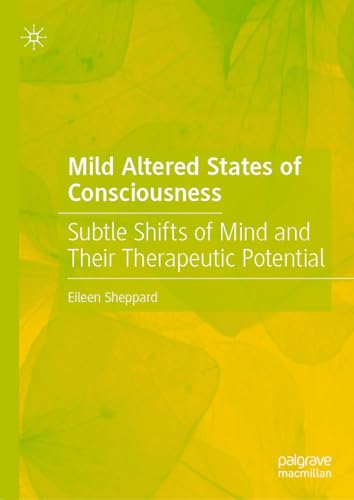
Mild Altered States of Consciousness: Subtle Shifts of Mind and Their Therapeutic Potential
Eileen Sheppard
This book draws on transpersonal anthropology and psychology in order to explore mild altered states of consciousness (ASCs) experienced in everyday life. While research into consciousness and particularly ASCs is growing, this book focuses on a neglected ‘everyday’ experiences of ASCs. Opening with an up-to-date overview of the development of the study of ASCs, the author presents an in-depth empirical exploration and mapping of mild ASCs. Dr Sheppard examines original research conducted in a range of religious and secular contexts with participants who were engaged in activities including prayer, sport, nature conservation, music and musical instrument making, and TV viewing. The author takes a novel phenomenological approach to the analysis of ASCs, emphasising the subjective experience. The book explores the healing potential of such mild ASCs; the everyday fantasy reality of the interior landscape; and discusses the problem of validity, and belief in the study of ASCs. It will appeal to students and scholars of transpersonal psychology, consciousness studies, social anthropology, and the philosophy of mind.
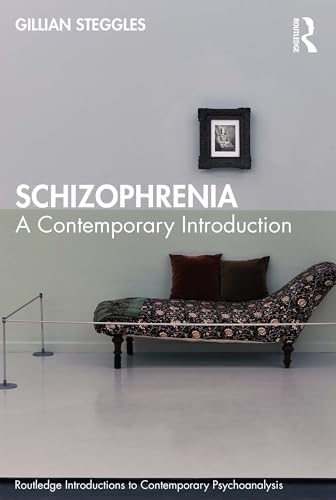
Schizophrenia: A Contemporary Introduction
Gillian Steggles
A Contemporary Introduction provides a vital overview of psychoanalytic work with patients dealing with schizophrenia, highlighting the many benefits of this approach and introducing key methods for mental health practitioners. This concise introductory volume starts by offering a brief historical introduction to how psychoanalysts, from Freud onwards, have approached schizophrenia and the methods they have used to alleviate the distress it causes its sufferers. Gillian Steggles illustrates how the developing relationship between patient and analyst can positively impact the patient’s mental functioning, leading to an improvement in their overall health and the ability to regain independence and self-reliance. She introduces theoretical psychoanalytic approaches, such as the Psychodynamic Pentapointed Cognitive Construct (PPCC) model, as a means of offering guidance to analysts dealing with schizophrenic analysands. This book will be of interest to practicing and trainee analysts, as well as those interested in the history of schizophrenia and its continued impact.